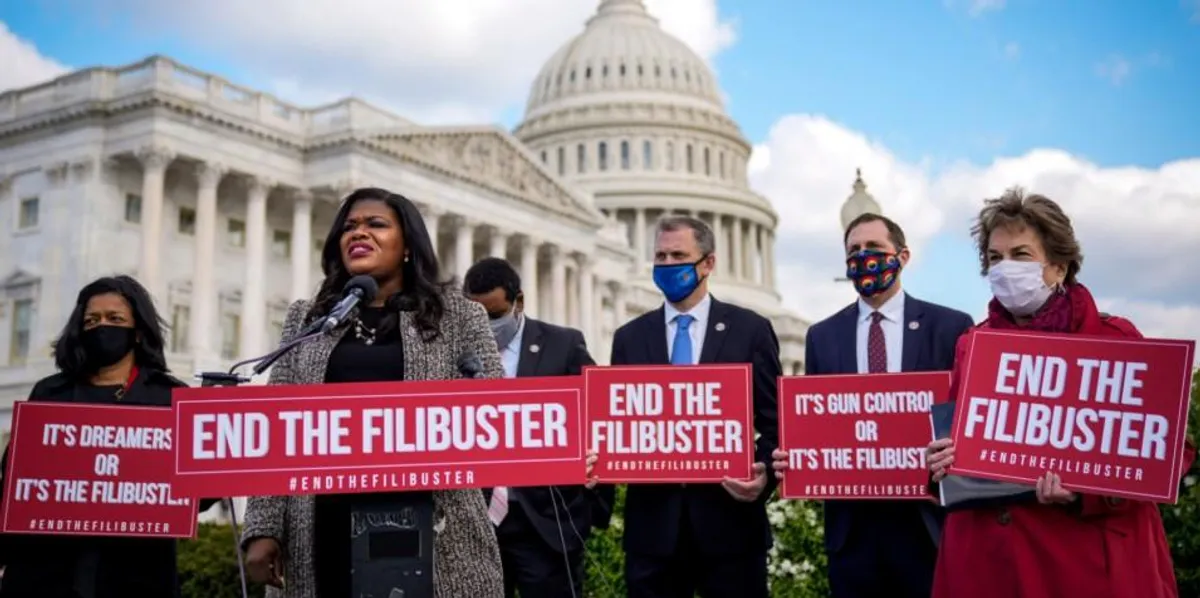The filibuster is on life support. Both parties have vowed to protect it, but both have chipped away at it. The latest blow came last week, when the parliamentarian, Senate’s independent rules referee, said a measure to strike down a California air pollution law was not exempt from the filibuster’s 60-vote threshold — and Republicans found a way to maneuver around her, pushing the bill through with a simple majority.
The next test for the filibuster is coming soon, when members consider a sprawling bill that carries much of President Trump’s domestic agenda. Republicans are moving it through Congress using special rules that shield fiscal legislation from a filibuster and that strictly limit what may be included in such bills.
The Senate majority leader, John Thune, says he’ll safeguard the filibuster.
Today’s newsletter explains how this parliamentary maneuver, made famous by windy speeches given for TV in the middle of the night, is changing.
Defining filibuster downward
Republicans can hardly be accused of delivering the blow that sent the filibuster reeling. That punch came from Democrats a dozen years ago, in November 2013. The G.O.P. was blocking Barack Obama’s judicial nominees, so Harry Reid, then the majority leader, orchestrated a series of votes to eliminate the 60-vote threshold for most confirmations.
Four years later, Republicans extended that filibuster exemption to Supreme Court nominees. Two years later, they shortened the time it takes to consider any lower-level nominee, a change that allowed both parties to speed the seating of judges.
The moves had monumental consequences. They enabled Trump to place three justices of his choosing on the Supreme Court. He didn’t need to make selections palatable to Democrats, since they could no longer influence the outcome. Most current members of Trump’s cabinet probably wouldn’t have been confirmed if a 60-vote threshold remained.
What’s next
In 2021, Democrats included a minimum wage hike in their own domestic policy bill, which was being considered under those same budget reconciliation rules that Republicans are using today.
The parliamentarian nixed the minimum wage proposal, saying it would not directly affect federal revenue. Progressives complained. They said they’d been thwarted by an unelected official and urged Democrats to forge ahead regardless. They did not.
Now, as Senate Republicans prepare to consider a sweeping spending- and tax-cut package, they will face similar pressure from inside their party to include major policy moves that do not qualify for reconciliation bills. They, too, may want to dismiss or ignore the parliamentarian if decisions go against them.
Thune says he won’t do this. He dismissed complaints that the move on the California pollution law did anything to weaken the filibuster. He also offered a prediction: “I suspect Democrats are trying to use this situation as cover to justify abolishing the filibuster the next time they’re in charge,” he said. “I think they think that they can make dismantling the Senate filibuster a lot more palatable by claiming, however mendaciously, that Republicans attacked it first.”
He may be right. In the grand tradition of the Senate, the minority party will want to get even at its first opportunity back in the majority.

